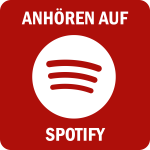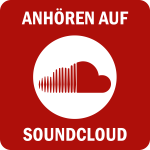These lines were written on May 1, commonly known as "Labor Day". It is celebrated above all by the fact that nobody works. And those employees who do anyway are usually paid extra for it, or get a replacement day off work. Someone should know their way around.
TOO LAZY TO READ ON? THEN LISTEN TO ME!
In the blogcast, I read this recent blog article to you. With emphasis, of course!
I was out on my morning run earlier. I came across a few small groups from the workers' movement heading towards the relevant rally in Vienna, armed with banners bearing slogans and all kinds of demands. The main issue was less working time and more money for it. What else was it about?
Many people say that when they are not working, they are free (or working from home). So, if they are working, they are therefore not free. That says something, doesn't it?
Well, like everything else, you can look at the phenomenon of work from different perspectives and tell very different stories about it. Let's leave out the self-employed, entrepreneurs and founders and stick to those who are called employees.
There are those who just do a job so that they hopefully earn enough money to live on, and because more and more often they don't, they do a second job on top of that. Or a third. Think of cleaners. It's the hours you put in and the pay that count. And then you have time off.
The second large group associates work with something like self-realization and often also self-worth. Performance, advancement, success, management, career count. Things like that. You're almost never free, otherwise you'd be replaceable and you don't want to be. Until you realize that you are.
These people like to meet up after work. There's hardly anything safer than drinks being served right away. As I can see from the selfies in the social media shop windows, it's almost exclusively Aperol Sprizz, gin and tonic, wine or beer in the containers. But not for long, then it's all in the after-workers themselves. And we've still taken one, haven't we?
What is this? A reward? Or a consolation?Probably both, I'm afraid.
The vast majority of these people come from jobs with a good educational background, where the career ladder is stable and, in principle, there is no dark shadow of suffering and deprivation. They start real life with huge ambition and after a while they look forward to their lunch break at breakfast, at lunchtime they look forward to after-work, at after-work they look forward to their vacation and on vacation they look forward to retirement. A lot of wasted time, but we've often looked forward to it - cheers!
What do these poor people do all day long in terms of planned self-realization that they have to reflexively pour alcohol on it afterwards? Questions upon questions.
Then there's a small, all too small group whose members are busy all day long. They work without looking at the clock, (mostly) looking forward to what's coming in the morning and (mostly) looking forward to the next day in the evening. These people work day in, day out, but they don't.
After experiencing the first group with student jobs and surviving the second despite a respectable advertising creative career, I consider myself lucky to have arrived in group 3. Admittedly, I have a pretty privileged life: I never have time off, no free time. If you have free time, you have working time first. But I don't have that either.
That wasn't always the case. On the contrary. For many years, I worked almost exclusively working hours + overtime. In the meantime, I have changed the time calculation to lifetime, 24 hours a day, seven times a week. My financial year starts now, with an equity of 31,536,000 seconds in which I can make a difference.
Yes, I often do something completely different in my job today than I used to, but this change, as obvious as it is (or seems), was by no means decisive. In reality, I do the same thing as before, it just usually looks completely different, because the change was not on my to-do list, not in my timetable, but in my head. Since I have understood what is called work as my task, the dividing line between working time and free time has disappeared into thin air and my practical activities have been completely transformed. In this order.
I joyfully and willingly place my talents and abilities at the disposal of my task and fulfill it with the excellence possible to me. This task fulfills me. And when I look at those people who are successful beyond what can be measured with traditional success parameters, they all have exactly that in common. They don't have a career, they have a job. Big, small, everyday, earth-shattering, at work - but not necessarily there.
Since gaining this new perspective, my focus has sharpened. I have become much more precise with everything I do and very generous with everything I don't do. It took me decades to hear, understand and accept this, including a glorious shadow career and two severe burnouts on top of that.
First work, then pleasure.
What stories do we tell ourselves about work? In large parts of the working population, it is the story of burden and suffering, isn't it?
The Boss, as we properly call the great chairman Bruce Springsteen, has written what I think is a terrific song: Factory.
It states:
Through the mansions of fear, through the mansions of pain
I see my daddy walking through them factory gates in the rain
Factory takes his hearing, factory gives him life
The working, the working, just the working life
We therefore ask ourselves how we can manage our working lives faster, more efficiently and more easily. Some even ask themselves how they can work better, and by better, many of them mean easier.
With increasing digitalization and thanks to everything that AI has in store, a few new questions are emerging.
Who will still be working at all?
When and how much will we work?
What will we be working on?
Some of the answers to these questions will please us at first, but then the truth is that we won't like them. They simply don't fit in with the usual story we tell ourselves about work: Salary and self-worth for performance and lifetime. Giving as little as possible and taking as much as possible in return.
As soon as we understand that those lorry drivers who could not be retrained as programmers cannot be recruited on a large scale for nursing professions, that copy-paste contract drafting lawyers can be digitized away by AI in the same way as top brain surgeons by precision robots, completely different questions will choke us. At the latest, when - ahem ... 25 percent? - of the so-called employable people with the most diverse talents and training are simply no longer needed in the learned work processes, it will be high time to replace the question of who, what, when, how much with a better one, which will then also be ready as a bubbling spring for a new story about work.
It is quite simple: Why do we work? Or in other words: What is human work?
The answer to this question also answers the question of why we are here, we humans, what the meaning of our existence could be. Is work really the condemnation to life's suffering or even the opportunity to shape the world? At least a little bit?
Are we not the only species on earth that can create, heal, realize beauty and wisdom for others? For the community, for the positive transformation of the greater whole into something greater whole? Wouldn't that be our task, our work?
Fritz Brügel's lyrics to Die Arbeiter von Wien (The Workers of Vienna ) echo this:
We are the builders of the world to come,
We are the sower, the seed and the field.
We are the reapers of the coming mowing,
We are the future and we are the action.
Our working world, like most things that we cling to like sloths on a branch out of old habit, needs a radical redefinition, a new story. Why not the same one that charges us with new meaning? One that emphasizes the human in human work, with a view to every form of work?
My mentoring in Africa.
Of course, from a privileged position like mine, you can spin such thoughts with a lightness of touch that you would hardly get a whiff of elsewhere. But not necessarily, not at all.
This was demonstrated to me a few years ago by a mentor in Africa, a mentor in the guise of a toilet attendant. If you've ever been to one of my keynotes, you probably know this story. It goes like this:
I'm waiting at the gate at Cape Town airport to board my flight back to Vienna when I hear a call of nature in an internal announcement. There's a little business to be done. As a role model for Adrian Monk, a visit to the public toilet at Cape Town airport is of course out of the question for me. The freshly cleaned toilet on the plane will soon accommodate me for relief, is my plan, which is thwarted by Mother Nature, however. At least my shoes don't have leather soles, I think to myself as I walk towards the airport toilet. There, at the gate, at the entrance to my visit to hell, I am greeted by the toilet attendant. In this particular case, it was a loo man. He, a black African man in his forties, dressed in dark blue so-called suit trousers and a blue shirt with white stripes, shows me the way inside with the words: "Welcome to my office, enjoy your meeting." It goes without saying that this announcement instantly rendered me defenceless.
Then, as my fountain leaps happily, I realize that this person has given me a much-needed double lesson.
- Stop being a chauvinistic stinker! Because, other than your prejudices, who says a public restroom at Cape Town airport has to be dirty? It was the opposite of that.
- This person, who spends most of his working life looking at the world not through rose-colored glasses but through toilet glasses, has rewritten the story of his work. He doesn't clean up other people's mess, he creates space for quality of life. And that is what he has actually done.
I suspect that, unlike me, he didn't need two burnouts to understand the message in Khalil Gibran's lines, especially for us potentials and high potentials:
And if you cannot work with love, but only with reluctance, it is better that you leave your work behind and sit at the gate of the temple and take alms from those who work with joy.
For if you bake bread with indifference, you bake a bitter bread that only half satisfies man's hunger. And if you crush the grapes with resentment, you distil resentment into the wine as poison.
And even if you sing like angels and do not fill your song with love, you muffle the ears of man for the voices of the day and for the voices of the night.
Work is love made visible.
If you feel for yourself, your profession, your company, your team or your brand that the questions about the true value, the meaning of your work are getting louder and you are searching for your purpose, for your new story, your NEW STORY, if you, like many others, are on the move, ready for transformation, you probably wish for supportive guidance from a mentor. And if you have the feeling that I could be that mentor for you, it would be an honor for me to accompany you with my NEW STORY programs. You can find all the details here, here or here.
Either way, if we recognized and experienced the meaning in our actions, no matter how seemingly mundane, we would all be happier and more loving with ourselves than we are now, and with our fellow human beings too. Our world would be a more peaceful place than it is today. This can be achieved in the most unusual places, where you can also meet mentors. Sometimes this is a public toilet in Africa.
The one person you definitely won't meet there is my grandmother, old Story Dudette. She's busy elsewhere, for example making a magnificent banner for the next May Day march, on which she embroiders the wise words with a hot needle: "New Story. New Glory."




